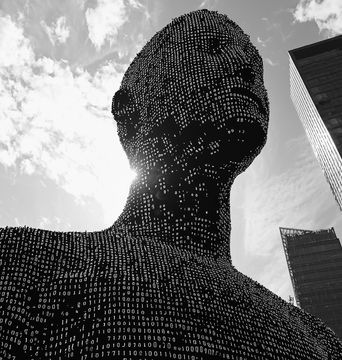HOLLYWOOD TITANS BAND TOGETHER TO BLOCK AI COPYRIGHT CHANGES PROPOSED BY GOOGLE AND OPENAI

Over 400 Hollywood creatives have come together to push back against proposals by tech titans Google and OpenAI, in an open letter to the Trump administration's Office of Science and Technology Policy. The discussions center around a controversial subject — the accessibility of copyrighted content for the training of artificial intelligence.
Pantheras of the entertainment industry including Ben Stiller, Mark Ruffalo, Paul McCartney, Cate Blanchett, and Ron Howard, among others, have raised their voices, suggesting that the demands of the AI industry threaten not just Hollywood, but anyone and everyone who generates intellectual property. This would extend from writers to architects, from doctors to software developers, putting their work at risk of exploitation without just compensation.
The recent unsettling claims stem from OpenAI and Google's proposal that AI companies should be permitted to train their systems on copyrighted content without consent or compensation. They argue that such flexibility in copyright laws is crucial for the advancement of AI and beneficial for scientific and societal progress.
In response, Hollywood, a longtime bastion of creativity and intellectual property rights, has cautioned about crossing the delicate line between technological innovation and rights infringement. Tinseltown's signatories stressed that the undermining of copyright laws is justifiable under no circumstances, not even under the banner of AI development, especially given the considerable resources already available to corporations like Google and OpenAI.
The echo of this heated discussion reverberates across industries; its resolution could determine the direction of AI development and the protection of intellectual property rights in the future. It also poses moral and ethical dilemmas. Is it fair to utilize creativity, protected by copyright, as a costless resource for AI training? And can the interests of technology advancement and intellectual property coexist, or will one inevitably be sacrificed for the other?
Beyond the glamour and glitz, Hollywood's shining stars and top creatives are not just film warriors anymore; they've stepped onto a new battlefield, defending the intellectual realm against potential tech usurpers. The future will tell how this dramatic scene plays out, but one thing is clear: the stakes could not be higher, for this is a battle not just for the heart of Hollywood, but creative industries globally.
We are witnessing a momentous crossroad in history where technology, law, and creativity converge. The decisions made now will echo in the corridors of legislation, artificial intelligence, and creative industries for years to come. This Hollywood narrative may be unfolding off the screen, but its denouement will be watched keenly by creatives and technologists around the globe.